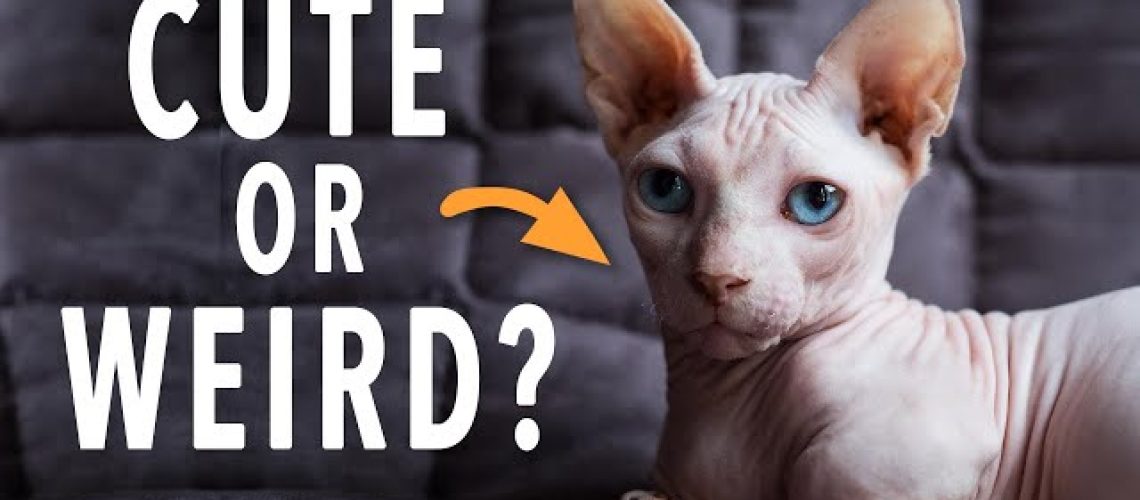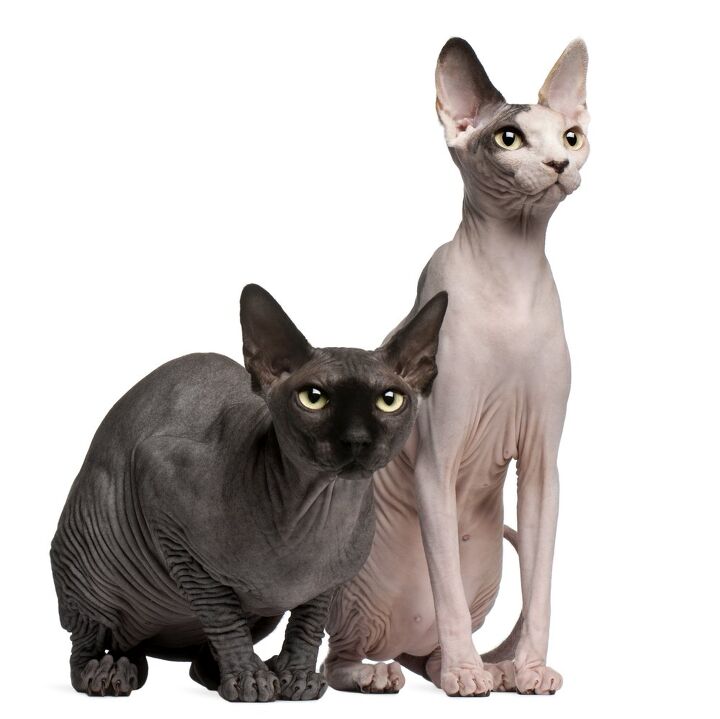Are you ready to embark on a journey into the world of hairless cats? These unique feline creatures have been capturing the hearts of cat lovers everywhere, and it's time for you to discover why. Not only will exploring popular hairless cat breeds introduce you to some truly fascinating companions, but it will also open your eyes to a whole new level of cuteness and curiosity. Whether you're a seasoned cat enthusiast or just starting your feline adventure, this topic is essential for understanding the vast array of cat breeds out there. So get ready to dive into the buzz surrounding hairless cats and prepare to be captivated by their charm and allure. Get ready for a purr-fectly delightful experience!
Key Takeaways:
- Hairless cat breeds, such as the Sphynx and Peterbald, have gained popularity due to their unique appearance.
- These cats require regular bathing to maintain their skin health and prevent oil buildup.
- Hairless cats are known for being affectionate and social, making them great companions.
- Due to their lack of fur, hairless cats may be more prone to temperature sensitivity and require extra warmth in colder climates.
- It's important to research and understand the specific care needs of hairless cat breeds before considering adoption.
Discover the Buzz: Popular Hairless Cat Breeds
1. Sphynx Cats
The Sphynx cat is one of the most popular hairless cat breeds. It has a unique appearance with its bald body, wrinkled skin, and large ears. Despite not having fur, their skin feels warm and soft to the touch. Sphynx cats are known for their playful and affectionate nature, making them great companions.
If you're considering getting a Sphynx cat as a pet, it's important to note that they require regular bathing to keep their skin clean and free from oils. They also need protection from extreme temperatures since they don't have fur to regulate their body temperature.
2. Devon Rex Cats
The Devon Rex is another popular hairless cat breed known for its curly coat and big eyes. Although they have some fur on their bodies, it is very short and fine, giving them a nearly hairless appearance. Devon Rex cats are highly intelligent and enjoy being the center of attention.
These cats are generally low maintenance when it comes to grooming since their short coats don't require much brushing or combing. However, regular ear cleaning is necessary as they are prone to earwax buildup due to their large ears.

Why People Love Hairless Cats: Growing Popularity Among Pet Owners
Hairless cats have been gaining popularity among pet owners for several reasons:
- Unique Appearance
- Hairless cats stand out with their distinctive look that sets them apart from other cat breeds.
- Their bald bodies and wrinkled skin make them fascinating to look at.
- The absence of fur also means less shedding, making them a good choice for people with allergies.
- Affectionate Personalities
- Hairless cats are known for their loving and affectionate nature.
- They enjoy being close to their owners and often seek physical contact.
- Their friendly personalities make them excellent companions for both individuals and families.
Meet the Famous Hairless Cat Breeds: One of the Most Well-Known Ones
One of the most well-known hairless cat breeds is the Sphynx cat:
Sphynx Cats
Sphynx cats are instantly recognizable with their hairless bodies, large ears, and wrinkled skin. They have a muscular build and an alert expression. Despite their lack of fur, they are not completely bald but have a fine downy coat that gives them a soft feel when touched.
Sphynx cats are highly social and enjoy interacting with humans and other pets. They thrive on attention and love to be the center of attention in any room. Their playful nature makes them great companions for families with children or other pets.
How Do Hairless Cats Look Different from Other Cats?
Hairless cats have some distinct physical characteristics that set them apart from other cat breeds:
- Lack of Fur
The most obvious difference is their lack of fur. Instead of having a coat of fur like most cats, hairless cats have either no hair at all or just a very short, fine coat. This makes their skin visible, which can be smooth or wrinkled depending on the breed.
- Unique Facial Features
Hairless cats often have large ears and prominent cheekbones, giving them a unique and striking appearance. Their eyes are usually big and expressive, adding to their charm.
- Body Temperature
Due to the absence of fur, hairless cats may feel warmer to the touch compared to cats with fur. They rely on their body heat to stay warm and may seek out warm spots in the house or cuddle up with their owners for extra warmth.
The Advantages of Owning a Hairless Cat as a Pet: Find Out!
Owning a hairless cat can offer several advantages:
- Hypoallergenic Qualities
For individuals who suffer from allergies, hairless cats can be a great option. Since they have little to no fur, they produce fewer allergens that can trigger allergic reactions.
- Low Shedding
Unlike cats with fur, hairless cats don't shed much. This means less time spent cleaning up pet hair around the house and fewer issues with allergies caused by pet dander.
- Unique Appearance
Hairless cats have an exotic look that many find appealing. Their bald bodies and wrinkled skin make them stand out from other cat breeds, making them an interesting conversation starter.
Special Care Requirements for Hairless Cats: What Potential Owners Should Know
If you're considering getting a hairless cat as a pet, there are some special care requirements you should be aware of:
- Regular Bathing
Since hairless cats don't have fur to absorb oils from their skin, they need regular bathing to keep their skin clean and healthy. Use gentle cat-specific shampoos and make sure to dry them thoroughly after bathing to prevent skin infections.
- Sun Protection
Hairless cats are more susceptible to sunburn and skin damage from UV rays. If they spend time outdoors, it's important to provide them with shade or use pet-safe sunscreen to protect their delicate skin.
Why Some People Prefer Hairless Cat Breeds Over Cats with Fur: Let's Explore!
There are several reasons why some people prefer hairless cat breeds:
- Allergies
For individuals with allergies, the low allergenic properties of hairless cats make them a suitable choice. Their minimal shedding and reduced dander production can significantly reduce allergic reactions.
- Unique Aesthetics
Hairless cats have a distinct and unique appearance that appeals to many cat lovers. Their bald bodies, wrinkled skin, and prominent features make them visually captivating.
- Low Maintenance Grooming
Hairless cats require less grooming compared to cats with fur. Without fur to brush or groom, owners can save time and effort on grooming tasks while still enjoying the companionship of a loving pet.
In conclusion, hairless cat breeds like the Sphynx and Peterbald are gaining popularity due to their unique appearance and hypoallergenic qualities. While they may require extra care and attention, these cats can make great companions for those looking for a one-of-a-kind pet.
What is the best hairless cat breed?
The sphynx is a popular breed of hairless cat that was originally developed in Canada during the 1960s. It was created through crossbreeding with shorthair cats to ensure a diverse and healthy gene pool, resulting from a recessive genetic mutation.
What is the difference between Ukrainian Levkoy and Sphynx?
The Levkoy is a hairless cat breed that has a much shorter and thicker tail compared to the Don Sphynx. The overall appearance of the Levkoy is very cute and slightly humorous. This particular breed of cat, the Ukrainian Levkoy, is only bred by a small number of catteries in Europe, including ours.
What two breeds make a Sphynx?
In Ontario, Canada, in 1966, a cat without fur named Prune was born from a domestic shorthair cat. Prune was considered unique genetically and was bred with a Devon rex cat in order to create a breed of hairless cats.
Are hairless cats safe?
While Sphynx cats are generally healthy, it's important for owners to be mindful of certain health problems that can impact this breed. Respiratory issues are common among Sphynx kittens, and they are also prone to conditions like Hypertrophic Cardiomyopathy, Hereditary Myopathy, and even sunburn.
What is a hairless cat called?
The Sphynx cat, also called the Canadian Sphynx, is a unique breed known for its absence of fur. The hairless characteristic is a natural genetic mutation, and the Sphynx breed was created through selective breeding of these cats, beginning in the 1960s. The Sphynx cat originated in Canada.
Are hairless cats fun?
Sphynx cats are affectionate and enjoy both cuddling and playing. If you are in need of a loving feline companion, Sphynxes are a great option. However, it's important to note that these cats may experience feelings of sadness if left alone for extended periods of time.

















